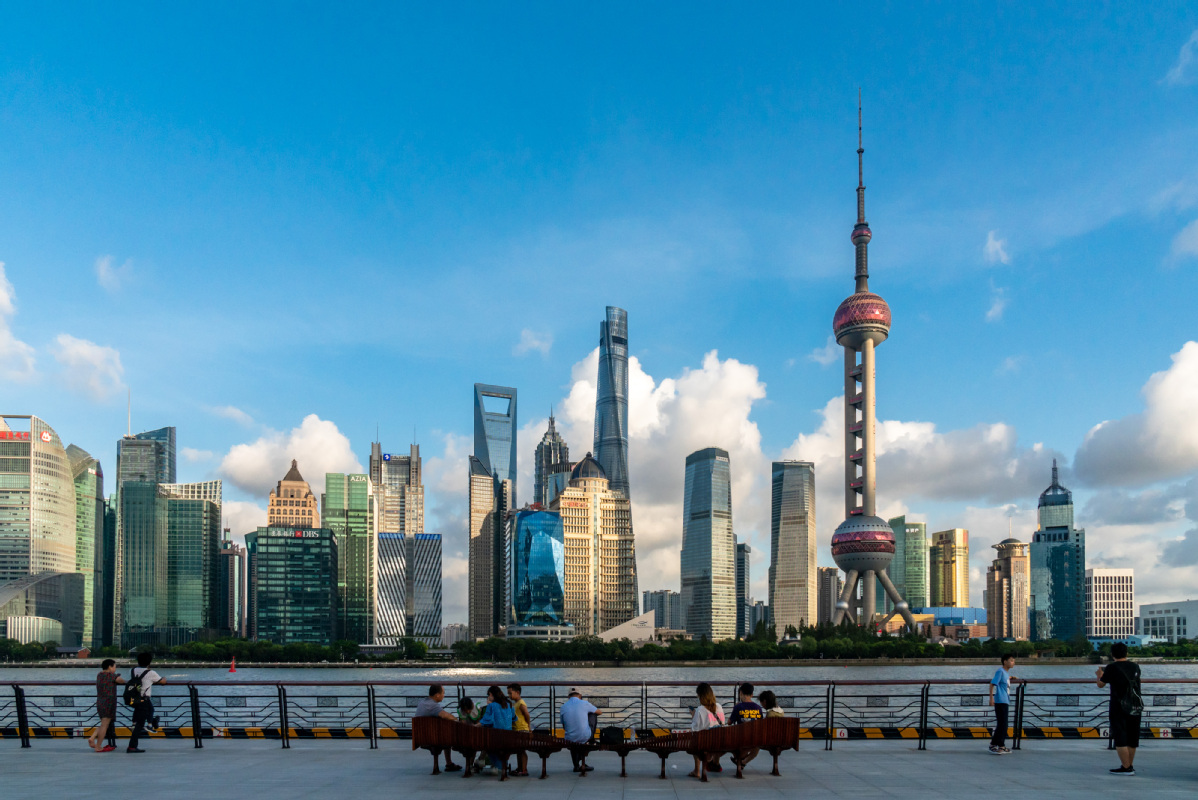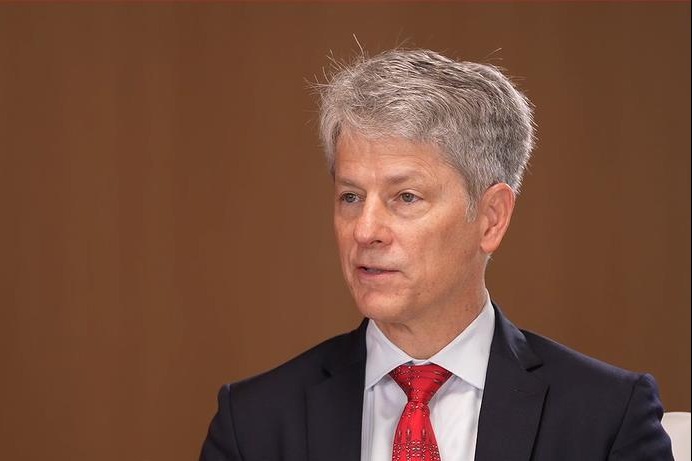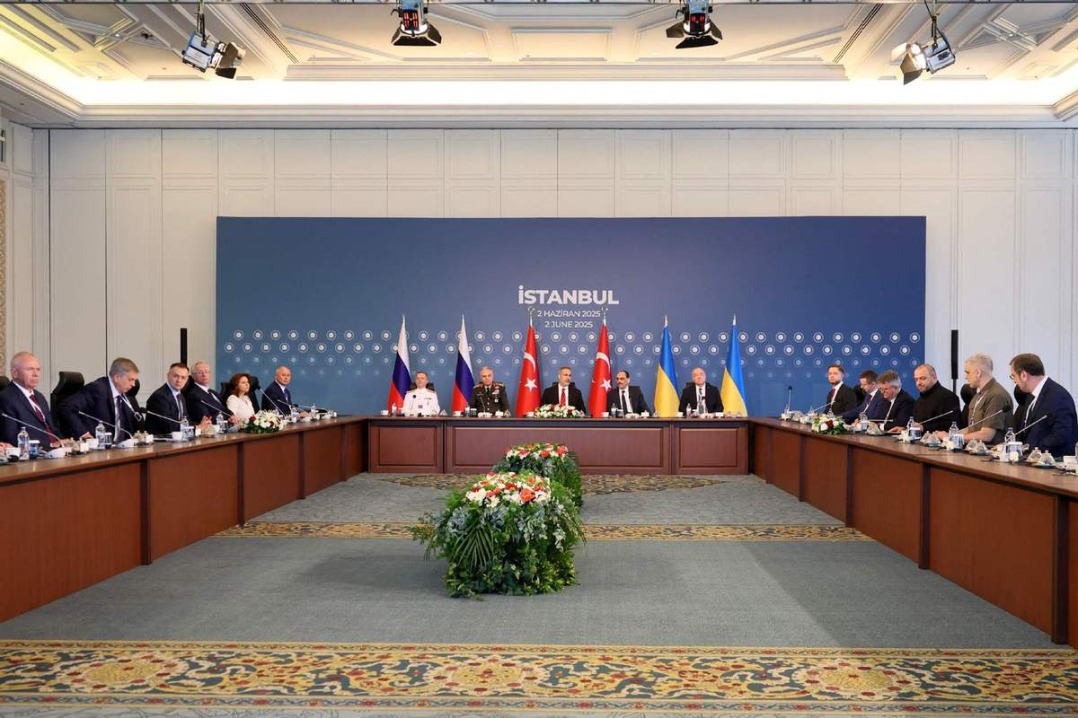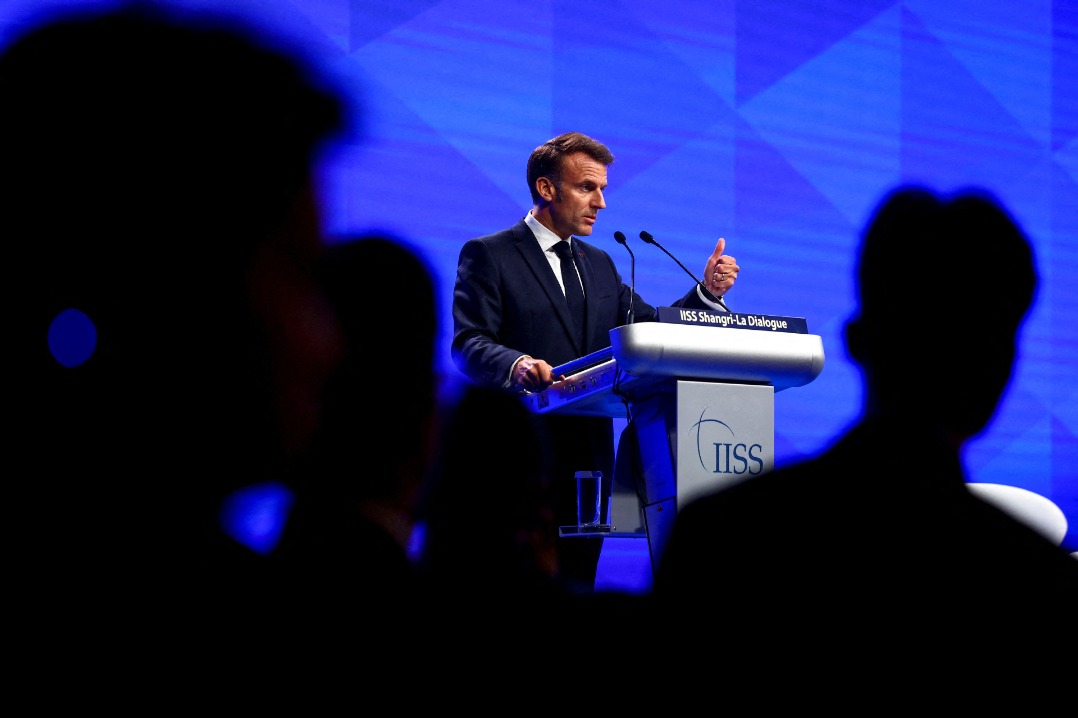New institutions facilitate high-level opening-up


With this year marking the 75th anniversary of the founding of the People's Republic of China and being a critical year for fulfilling the goals set out in the 14th Five-Year Plan (2021-25), Chinese policymakers are making greater efforts to foster a new development pattern, advance high-quality development and further deepen reform and opening-up.
China's plan for further opening-up in the new era is part of the country's comprehensive reforms, as outlined in the resolution of the third plenary session of the 20th Central Committee of the Communist Party of China, which was held in July. The resolution said China will further deepen reform comprehensively to advance Chinese modernization, and promote high-level opening-up. It also said that leveraging the strengths of its enormous market, China will deepen cooperation with other countries, steadily expand institutional opening-up, further reform the foreign trade structure, improve planning for regional opening-up, and refine the mechanisms for high-quality cooperation under the Belt and Road Initiative.
China aims to build a high-standard socialist market economy in which the market will play the decisive role in resource allocation and the government will act as supervisor, and intervene in the market only if needed. Also, it will strive to become self-reliant in science and technology, expeditiously develop a new development paradigm, and pursue high-quality development.
The global economy faces some serious challenges including that of weak recovery, and a complex and unpredictable geopolitical landscape. Consequently, international capital is increasingly seeking safety and hedging against risks. That's why China, in addition to advancing its own development, has pledged to accelerate its opening-up, creating more development opportunities for the rest of the world and better protecting the rights and interests of foreign investors. China will also further open up its commodities, services, capital and labor markets.
China's foreign trade faces pressure due to the restructuring of the global value chains, making the country's efforts to liberalize trade and facilitate investment increasingly important amid the growing trend of trade protectionism and "de-coupling" and "severing of industry and supply chains" in some economies.
As highlighted in the resolution, China will align its domestic economic and trade rules with international standards, including harmonizing regulations and standards in sectors such as property rights protection, industrial subsidies, environmental standards, labor protection, government procurement, e-commerce and financing.
Entering a new era of green and innovation-driven development, the country has transitioned from a primarily vast consumer market and low-cost manufacturing hub to a critical regional export base, innovation center and a major link in the global supply chains. For example, the combined export volume of electric vehicles, lithium batteries and solar photovoltaic panels, known as the "new three items", last year was 1.06 trillion yuan ($146.39 billion), up 29.9 percent year-on-year. And industrial robot exports soared by 86.4 percent year-on-year.
As the world shifts toward low-carbon development, the demand for environmentally friendly and sustainable products has surged, with the "new three items" becoming highly sought after in the global market. China is the leading producer, consumer and exporter of these items, because the Chinese government and companies have invested heavily in these sectors, especially in research and development.
The World Customs Organization has urged economies to join the "Authorized Economic Operator" program to boost the security of the global supply chains and facilitate the free movement of legitimate goods in the global markets. Customs officials from different countries and regions have vowed to work together to reduce the barriers of complicated customs procedures and make global trade more efficient.
By the end of June, China had signed AEO mutual recognition agreements with 28 economies, including the European Union and South Africa. It will sign more such agreements with more economies, in order to bolster commercial exchanges both domestically and globally.
The rapid development of e-commerce has helped transform China's foreign trade. China now has the most online shoppers in the world, more than the United States, the United Kingdom and Australia put together.
However, countries around the world need to implement targeted policies to facilitate the green and digital transition of economies, better safeguard global trade, and ensure food and energy security. China remains committed to expanding high-standard opening-up and sharing development opportunities with the rest of the world.
The top Chinese leader has emphasized the importance of further deepening reform to build a modern socialist country in all respects and realize the rejuvenation of the Chinese nation. Stressing that the ultimate goal of promoting reforms and pursuing high-quality development is to meet people's need for a better life, the top leader said that reform measures must take into consideration the overall, fundamental and long-term interests of the people, including creating more new jobs, increasing people's incomes, improving the education, healthcare and housing sectors, and upgrading childcare and eldercare services.
Despite the global headwinds, China continues to attract huge amounts of foreign direct investment. According to the recently released 2024 Kearney FDI Confidence Index report, which reflects investors' expectations for FDI in the next three years, China's global ranking has risen from seventh to third. While China's efforts to expand opening-up and free trade have yielded positive results, the Belt and Road Initiative has three-quarters of the world's countries as partner economies, which has significantly boosted global trade and investment. Still, China will continue to spearhead efforts to boost global trade and investment, while pursuing high-quality development domestically.
The author is a professor and doctoral supervisor of International Economics and Trade at the School of Economics, Peking University.
The views don't necessarily reflect those of China Daily.
If you have a specific expertise, or would like to share your thought about our stories, then send us your writings at opinion@chinadaily.com.cn, and comment@chinadaily.com.cn.


































